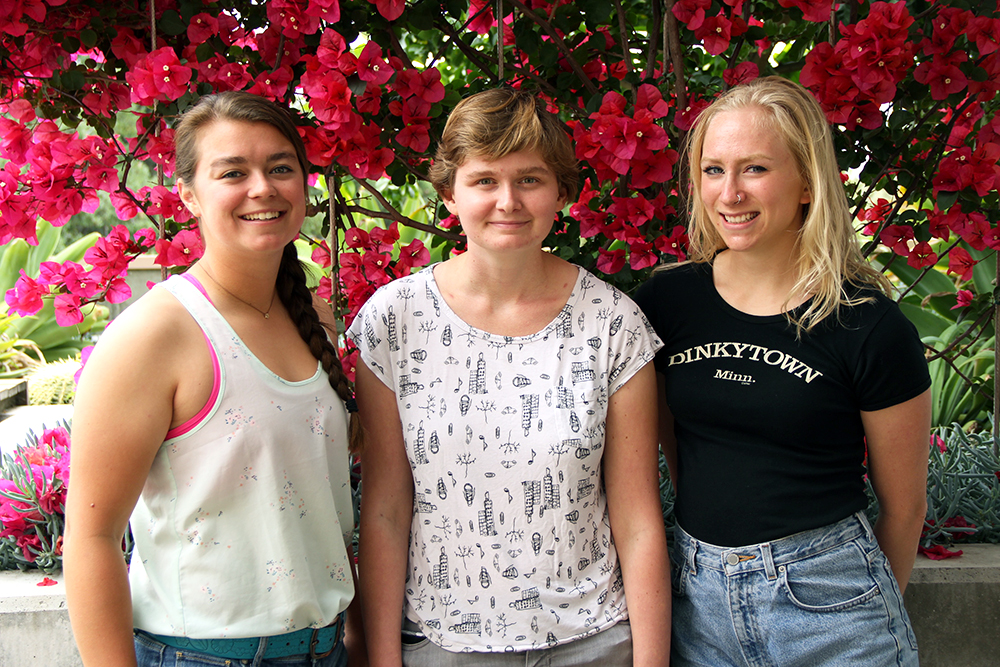Harvey Mudd Team a Top Finisher in Math Modeling Contest
April 24, 2017
Seeking creative and relevant solutions to complex questions facing modern societies, six Harvey Mudd student teams continued the College’s tradition of participating in the Mathematical Contest in Modeling (MCM) and Interdisciplinary Contest in Modeling (ICM) this past January. All Harvey Mudd teams placed in the top 50 percent or above, with one team receiving the highest designation—Outstanding Winner.
The concurrent competitions give each team 96 consecutive hours to develop a mathematical model that solves a real-world problem and then write a formal paper describing their work. Solutions are judged not only in terms of scientific and mathematical accuracy, but also on clarity of exposition, insight and creativity. Weiqing Gu, MCM/ICM coordinator, professor of mathematics and director of the Mathematics Clinic, encourages participation, provides guidance and oversees the online entry process, with assistance from staff members Jocelyn Olds-McSpadden and DruAnn Thomas.
In the ICM, the Harvey Mudd team of Rachel Perley ’19, Anna Goetter ’19 and Nina Brown ’19 received the Outstanding Winner designation, earned by the top 1 percent—only 14 teams. They produced a winning solution to an urban planning problem related to smart growth and sustainable cities. Teams sought to understand and model the principles of modern urban planning to improve city operation. The modelers tested their systems on two cities of their choosing, searched for pertinent data and grappled with how phenomena internal and external to the system under study needed to be considered. The work of the Outstanding Winners will be featured in The UMAP Journal.
Also competing in the ICM was the team of Raunak Pednekar ’17 and Natchanon Suaysom ’18. They received the Meritorious designation (top 10 percent) for their work on a futuristic problem that involved establishing policies for a workforce to migrate to Mars in 2100. The modelers focused on finances, education and social equality of the future Mars colony.
In the MCM, a team consisting of seniors Micah Pedrick ’17, Caitlin Lienkaemper ’17 and Mackenzie Kong-Sivert ’19 received Meritorious (top 7 percent) for their solution to Problem C, an assessment of the impact of self-driving vehicles on a particularly dense traffic network in the Greater Seattle area. The MCM team of Herrick Fang ’19, Teerapat Jenrungrot ’19 and ZiYang Zhang ’19 earned Honorable Mention (top 40 percent) for its solution to Problem B (improving the diffusion and convergence of multi-lane traffic on two sides of a highway toll collection facility). Stetson Bost ’18, Joshua Miller ’18 and Amy Huang ’18 also tackled Problem B and earned the Successful Participant designation (top 49 percent) as did the team of Calvin Leung ’17, Timothy Middlemas ’17 and Dina Sinclair ’17 for work on Problem A, concerning the effect of an aging Zambezi river basin dam on downriver populations.
Worldwide, 8,843 teams participated in the MCM, and 8,085 teams participated in the ICM. The annual contests present an array of real-world problems in continuous, discrete or interdisciplinary mathematics that require ingenuity, collaboration and strong communication in order to tackle effectively.
The MCM and ICM are organized by the Consortium for Mathematics and Its Applications (COMAP), a nonprofit organization that seeks to improve mathematics education for students of all ages and create learning environments where mathematics is used to investigate and model real-world issues.
Read a blog post about the experience of one of participant, Calvin Leung ’17.
